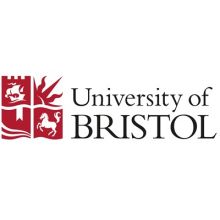The University of Bristol’s vice-chancellor, Evelyn Welch, has defended her decision to mark art history essays during an assessment boycott – a move that has been criticised as “highly provocative and undignified”.
Professor Welch, a Renaissance history expert, told Times Higher Education that she will be marking the work of final-year students to mitigate the impact of the nationwide marking boycott that began on 16 April. Bristol has confirmed that it will dock 50 per cent of pay for those refusing to grade papers, a policy that has been criticised by hundreds of staff and students.
Confirming reports that she had recently started marking work in her discipline, Professor Welch said the university was “committed to prioritising the marking of final-year students’ work by subject experts, hence why I will be marking some history of art dissertations”.
“Having spoken to our students, I know they want to graduate with a degree classification, and therefore I’m joining with non-striking staff to make this happen,” added Professor Welch.
The award-winning historian, who has led Bristol since September 2022, added that the university “fully respect[s] the rights of staff to take industrial action, and I’m hopeful a resolution can be found at a national level, but in the meantime we must minimise the impact on our students who have worked so hard to complete their degrees.”
The intervention is, however, likely to further strain relations between university management and staff, following months of industrial action over pay and working conditions. Staff at Bristol are due to walk out on 16 June, targeting a university open day, while the local University and College Union (UCU) branch has criticised temporary academic regulations enacted this summer that, they claim, will lead to “degraded degrees”.
John McTague, co-vice-president at the university’s UCU branch, said Professor Welch’s intervention was “a highly provocative and undignified move” and “a completely unnecessary one”.
“There are many better and more appropriate uses for the vice-chancellor’s very costly time,” added Dr McTague, a reference to Professor Welch’s £285,000 basic salary.
Staff have remarked that they had been “deeply shocked” by Professor Welch’s actions, he continued. “As one member commented to me: ‘It’s no surprise the vice-chancellor isn’t concerned about workloads if she thinks marking dissertations is something she can do in coffee breaks between committee meetings,” said Dr McTague.
“I’m not convinced history of art students will be overjoyed to find that their dissertations have been marked by someone who has not taught on their programme, and who is likely to be a complete newcomer to our various marking and assessment processes,” he added.
Dr McTague also criticised a “palpable lack of substantive engagement” from senior university management related to both national disputes (“refusing point-blank to call for reopening of negotiations”) and “similar inertia in our local dispute over the institution’s punitive pay deductions of 50 per cent for participation in the marking and assessment boycott”.
“So we are sliding apparently inexorably into widespread strike action disrupting one of the busiest university open days of the year on 16 June,” said Dr McTague.
Register to continue
Why register?
- Registration is free and only takes a moment
- Once registered, you can read 3 articles a month
- Sign up for our newsletter
Subscribe
Or subscribe for unlimited access to:
- Unlimited access to news, views, insights & reviews
- Digital editions
- Digital access to THE’s university and college rankings analysis
Already registered or a current subscriber? Login






